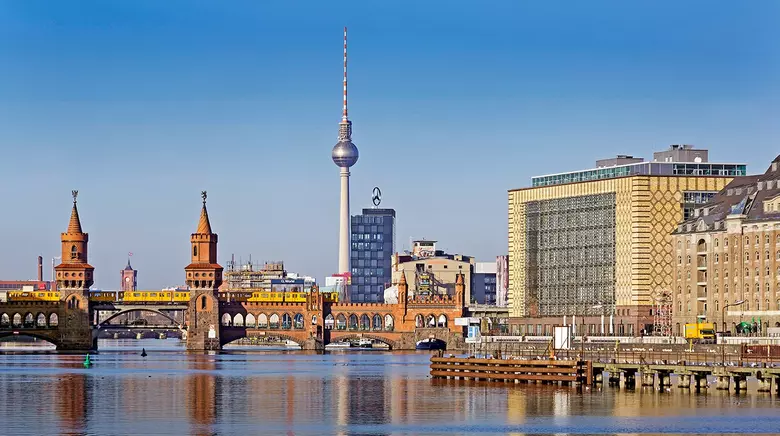Residence Permit for Working Professionals

For EU citizens, the EU right of free movement applies to their residence. If you would like to stay in Berlin or Germany for more than three months, please register with a Berlin Bürgeramt office within 14 days of your arrival. Employment in a company in Berlin or Brandenburg does not pose any problems within the framework of the free movement of workers.
Citizens of the USA, Canada, Australia, New Zealand, Great Britain, Israel, Japan and the Republic of Korea can enter Germany without a visa. If you want to work in Berlin, you need a residence permit for employment or an EU Blue Card. You can apply for a residence permit at the Berlin Immigration Office (LEA, Landesamt für Einwanderung) within 90 days of entering the country. You may not begin working in Berlin until your residence permit has been issued.
You may therefore wish to apply for a national visa at the German Embassy and/or Consulate in your country of origin or country of permanent residence. This allows you to clarify, before travelling to Germany, whether or not you will be granted a residence permit in Berlin.
If you have travelled to Germany with a national employment visa, you may begin working as soon as you enter the country. Approximately two months before that visa expires, you have to apply to convert your national visa into a residence permit at the LEA (Berlin Immigration Office).
OUR TIP
University graduates and (visiting) scientists and researchers with an offer of employment in Berlin, as well as entrepreneurs and those who have founded a company can contact the Business Immigration Service. The service will support them by answering any questions they might have regarding residence permits.
Nationalities outside of the EU
The following applies to all other nationalities outside the EU: you will need a national/D-visa including permission to work in order to enter Germany. You can apply for this visa at the German Embassy or Consulate in the country you normally reside in. If you have travelled to Germany on such a visa, you must apply to the Berlin Immigration Office (LEA) to convert your visa into a resident permit approximately eight weeks before the visa expires.
If you already possess a different type of German residence permit, you may have to check whether or not this permit allows you engage in the type of employment you have planned. In this case, your employer can also contact the Business Immigration Service for more information.
OUR TIP
Your future employer in Berlin can in certain cases, before you enter the country as a foreign skilled worker, clarify in a preliminary approval process whether or not the Federal Employment Agency will grant permission for you to be employed for the job in question. If preliminary approval is granted, it is valid for six months.
More information about visa
Overview of German Embassies & Consulates
Additional information on German residence permits
- Berlin Immigration Office (LEA)
- Information about taking up employment
- Information about taking up employment and about working as an au pair
- Information about employment as a visiting scholar or academic staff member
- Information about participating in the Working Holiday or Youth Mobility programs
- Information on job searching for qualified professionals
If you need help filling out forms, official visits, translations or personal services, just share a request on MyHelpBuddy.com and take a look at what the buddies have to offer. Buddys are Berliners who will help you get a fresh start in the capital.
OUR TIPP
You need a work permit for Berlin? Please read the interview with our expert Marion Schönicke published in the Kenjo Blog! The most important questions about the topic will be answered here.
Did you know? If you apply to work at a company in Berlin, your future employer can help you to clarify questions regarding your residency. The Business Immigration Service (BIS) facilitates quick, uncomplicated issuance of residence permits for qualified skilled workers and entrepreneurs.
OUR TIP
If you are thinking about becoming a German citizen, it is best to first check without obligation whether you meet the necessary requirements. You can do this on the website einbuergerung.de. The website contains a quick online test as well as useful information that you will need for your citizenship application.
Special case: Blue Card
If you have an offer of employment as a highly qualified professional, you may have the right to receive an EU Blue Card. Find out more on the BIO website or discuss your options with the Berlin Immigration Office (LEA).


